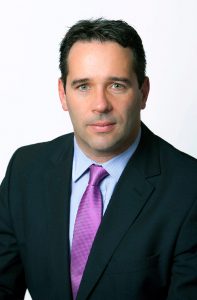Surplus funds to invest? Why you should look beyond the bank
For business owners, holding excess capital in cash or bank deposits has always been a nice problem to have. As the value of traditional monetary assets has fallen in recent years, generating a return on cash reserves has become more challenging.
The financial crisis of 2008 created a low-interest, low-inflationary environment that has lingered on to the present day. As interest rates continue to plummet, many larger corporate clients today have to pay their bank just to hold their cash.
While Small and Medium Enterprises (SMEs) are not likely to be charged just for placing cash on deposit, they are even less likely to see any meaningful returns on deposits for the foreseeable future. Business owners therefore need to look at alternative ways of putting their hard-earned capital to work.
For SMEs, working capital has a variety of needs and uses. Paying the bills and serving as a vital safety net in case emergency reserves are ever required. Excess cash can also be held with a view to the longer term – Mergers & Acquisitions (M&A) expenditure, for example – while some owners may find themselves in the enviable position of having surplus funds for extraction.
Alternatives to bank/bonds
The traditional methods of depositing capital in a bank account or investing in Government bonds are now less enticing. So how can investors and business owners get more creative with their excess funds?
High-quality bonds were traditionally seen as a safe bet. Today, Euro government bond yields have plummeted below 1% and can now attract a negative yield. Equities are another option.
They may return higher yields than other asset classes but are more volatile.
Then there are ‘alternative’ asset classes like private equity, property, hedge funds and commodities. Again, investors in these alternatives are required to play the long game, which may not always suit the shorter-term needs of SME owners.
Multi-asset investing
There is no single approach that offers a safe bet. However, a strategy of multi-asset investing – known as the endowment model – may be a more rewarding way to go. This involves diversifying across traditional asset classes such as equities and bonds, while allocating significant portions of the portfolio to alternatives such as private equity, hedge funds and property.
Combining asset classes in this way has been shown to generate annual returns well above the traditional 60/40 stock/bond portfolio, but again there’s a catch – endowment models are expensive and time-consuming to set up, making them impractical for many corporate clients.
UCITS worth considering
A more realistic approach for SME owners may be to invest in low-cost funds that replicate the best features of the endowment model, i.e. diversification across a wide range of asset classes. In particular, UCITS (Undertakings for Collective Investment in Transferable Securities) funds are worth considering.
UCITS funds are highly liquid and can be redeemed quickly if and when the need arises. Many UCITS are also sold at a single price so there is no bid-offer spread. There are risks and considerations associated with this approach, but a degree of risk is, of course, inherent to all investments.
Start the conversation
 The first step is to decide whether your surplus cash really is surplus. Once you’re sure you are in a position to invest, you can look at an investment strategy that suits your individual circumstances. At Davy, we specialise in helping business owners meet the challenges of a complicated investment market. If you would like to have a conversation about making the most of your excess capital, we’d love to talk to you.
The first step is to decide whether your surplus cash really is surplus. Once you’re sure you are in a position to invest, you can look at an investment strategy that suits your individual circumstances. At Davy, we specialise in helping business owners meet the challenges of a complicated investment market. If you would like to have a conversation about making the most of your excess capital, we’d love to talk to you.
Brian Cox is an Associate Director with Davy. He works with business owners to provide best-in-class financial planning, investment management and asset selection. You can contact Brian directly on 01 614 9180 or email brian.cox@davy.ie.
WARNING: Past performance is not a reliable guide to future performance. The value of investments and of any income derived from them may go down as well as up. You may not get back all of your original investment.
J&E Davy, trading as Davy, is regulated by the Central Bank of Ireland.
The content of this site is subject to copyright laws and may not be reproduced in any form without the prior consent of the publishers. The views expressed in articles do not necessarily represent those of the publishers.

